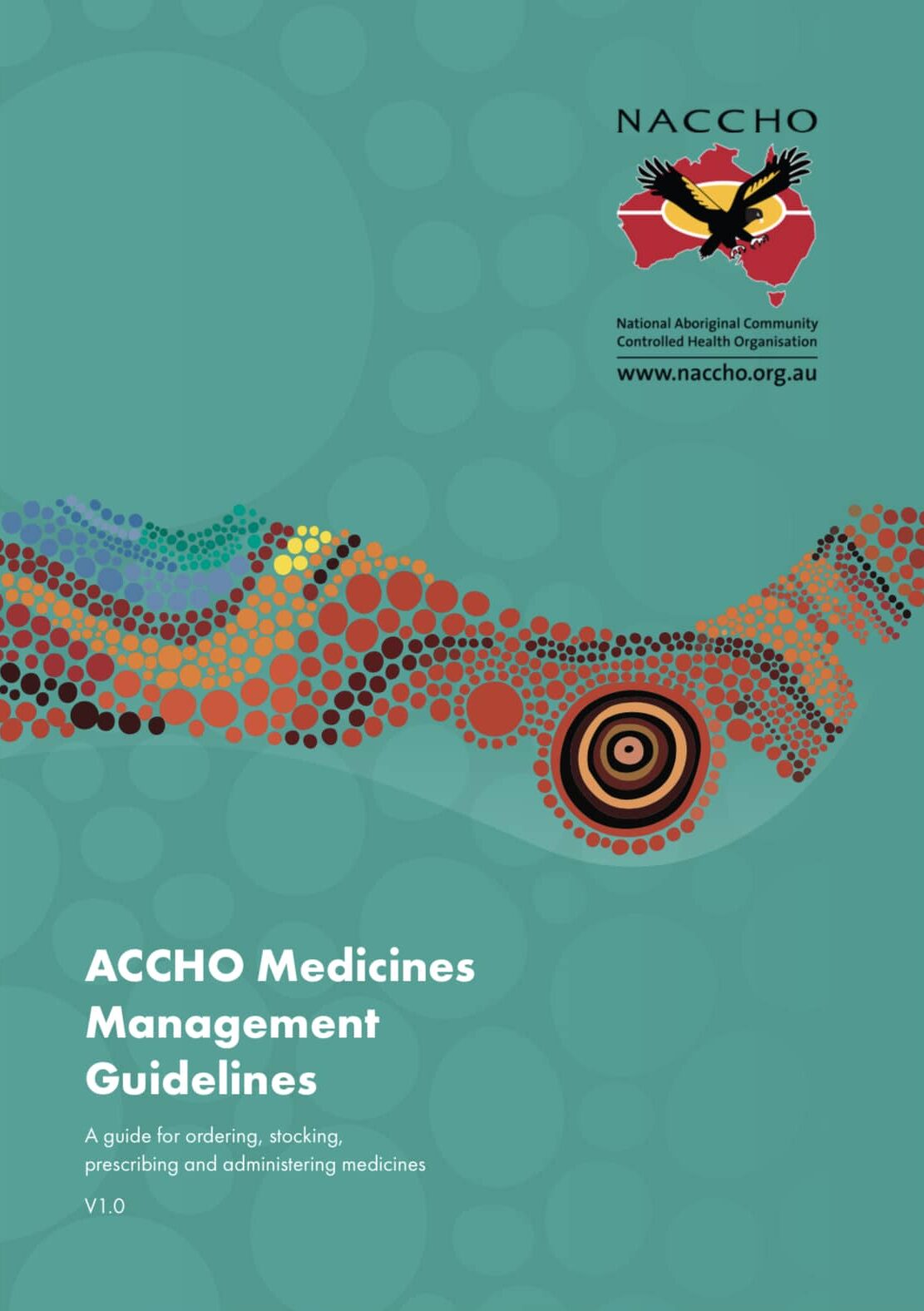- Which medicines are stocked at your ACCHO?
- How do clients access medicines that are not in stock?
- How do you decide what medicines to stock?
- What processes govern the way that medicines are used?
- How do you make sure medicines are used safely and effectively, both in and out of the ACCHO?
These guidelines are a practical guide to help Aboriginal Community Controlled Health Organisations (ACCHOs) take steps to strengthen the way they manage medicines throughout the organisation. Medicines are an essential part of health care, and their management extends into many areas of each ACCHO’s models of care, including storage, ordering, supply, and administration, as well as prescribing guidelines and medicines competency of staff. Medicines are used in a very wide range of health conditions. They can offer a huge health benefit to the community and can save lives. However, medicines can also be associated with harm, their use may be complex, and they need to be used safely and appropriately.
Strong oversight and management of the use of medicines at ACCHO clinics, including the development of standard medicines lists, can have a big impact on the health of clients and the community. When good governance and quality improvement of medicines is supported, the chance of medicines errors and risk of client harm can be reduced.
This can also significantly improve the workflow and communication for staff and can result in substantial savings for both ACCHOs and clients. Strengthening medicines management is an important part of Continuous Quality Improvement (CQI) for ACCHOs and can support accreditation.
From a management perspective, clearly articulated policies can also improve clarity around decision making (saving time), help in dispute resolution both internally and with clients, decrease overhead costs, and reduce day-to-day staff stress caused by uncertainty or ambiguity.
You can download the ACCHO Medicines Management Guidelines document here or please contact medicines@naccho.org.au to request a hard copy.
If you have any concerns or questions, please contact medicines@naccho.org.au
NPS MedicineWise Medicine Use in Remote Australia – Remote Area Aboriginal Health Services (RAAHS) Resource Hub.
CATAG (2013)
“Achieving effective medicines governance: Guiding Principles for the roles and responsibilities of Drug and Therapeutics Committees in Australian public hospitals.”
Commonwealth of Australia (2002)
The National Strategy for Quality Use of Medicines. Canberra.
Kimberley Aboriginal Health Planning Forum (2018)
“Kimberley Standard Drug List (KSDL)”
NACCHO guide for working with pharmaceutical industry NACCHO has policies to ensure all dealings with commercial entities are done in an unbiased, open and transparent way. This Guide may assist ACCHOs to adhere to relevant standards.
NPS Medicinewise – Professional education resources
Remote Primary Health Care Manuals (2017)
Medicines Book for Aboriginal and Torres Strait Islander Health Practitioners. Alice Springs, NT, Centre for Remote Health.
World Health Organization (2021)
“WHO Model Lists of Essential Medicines”
World Health Organization (2003)
“Drug and therapeutics committees: a practical guide”. Authors: Kathleen Holloway (editor), Terry Green. World Health Organization.
NT Health Accepted Brand Names for Medication Prescribing
Aboriginal and Torres Strait Islander Medication Safety Handbook
The Selection and Use of Essential Medicines 2021
Medicines lists for Aboriginal and Torres Strait Islander people
